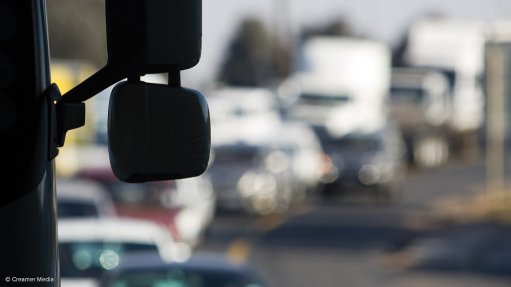
Photo by: Duane Daws
There are around 190 telematics service providers in South Africa, says Regent Insurance commercial vehicles national manager Wayne Rautenbach.
Telematics, broadly speaking and in this context, refers to the remote monitoring of a vehicle, such as tracking a stolen vehicle, or determining the speed of a delivery vehicle to ensure better driver behaviour.
Rautenbach says there is “great competition” in the telematics market, with some companies basing their product on price, and not providing any real value-add.
The telematics industry is probably the “most over-promised, under-delivered” industry, not only in South Africa, but worldwide, adds MAN Truck & Bus MD Geoff du Plessis.
He says it is not difficult to fit a vehicle with telematics, but the real challenge lies in “keeping it up”; in ensuring that the system works, providing relevant information to the vehicle operator.
C-Track fleet management MD Hein Jordt believes it is necessary for the telematics industry to move away from being “box-droppers” – mere system installers ¬– to providing solutions tailored to customer needs.
“We need to sit down and talk about the customer’s data needs.”
Du Plessis says the vehicle telematics industry started with the idea of tracking and tracing vehicle loads, owing to theft and hijacking.
However, systems have now migrated to a myriad of other uses, such as driver management, preventative management and fuel saving.
“If you have two trucks, you need telematics,” says Du Plessis.
Telematics can ensure the more efficient transportation of goods, while reducing the cost of vehicle ownership, notes Mercedes-Benz trucks divisional manager Clinton Savage.
He says there are “hundreds of data points” available that owners and operators can use to improve their operations.
However, this information is often ignored.
When it comes to telematics, the biggest investment lies not in implementing the technology, but in implementing the changes the telematics system reveals to be necessary for more efficient fleet operation, says Du Plessis.
Should the system reveal that drivers are speeding and using too much fuel, for example, then they must be trained to operate their vehicles more efficiently, which can be more costly than simply installing a telematics system.
There lies unknown value in the information supplied by a telematics system, adds Jordt.
These benefits are often not realised because telematics systems are more used as a stick to punish drivers, rather than to optimise a fleet’s efficiency.
* Rautenbach, Jordt, Du Plessis and Savage spoke at the TruckX conference, held earlier this month